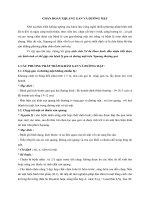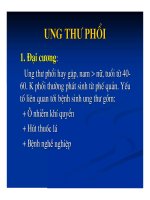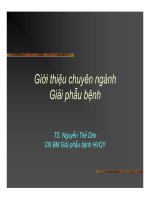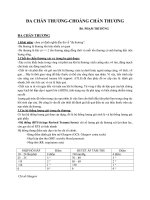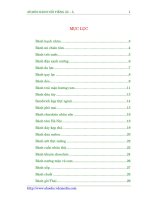230822-200-English-Grammar-Mistakes.pdf
Bạn đang xem bản rút gọn của tài liệu. Xem và tải ngay bản đầy đủ của tài liệu tại đây (2.21 MB, 117 trang )
200 English Grammar Mistakes!
A Workbook of Common Grammar and
Punctuation Errors with Examples,
Exercises and Solutions So You Never Make
Them Again
Melony Jacobs
t.me/enbook
© Copyright 2019 Melony Jacobs- All rights reserved.
The content contained within this book may not be reproduced, duplicated or
transmitted without direct written permission from the author or the
publisher.
Under no circumstances will any blame or legal responsibility be held against
the publisher, or author, for any damages, reparation, or monetary loss due to
the information contained within this book. Either directly or indirectly. You
are responsible for your own choices, actions, and results.
Legal Notice:
This book is copyright protected. This book is only for personal use. You
cannot amend, distribute, sell, use, quote or paraphrase any part, or the
content within this book, without the consent of the author or publisher.
Disclaimer Notice:
Please note the information contained within this document is for educational
and entertainment purposes only. All effort has been executed to present
accurate, up to date, and reliable, complete information. No warranties of any
kind are declared or implied. Readers acknowledge that the author is not
engaging in the rendering of legal, financial, medical or professional advice.
The content within this book has been derived from various sources. Please
consult a licensed professional before attempting any techniques outlined in
this book.
By reading this document, the reader agrees that under no circumstances is
the author responsible for any losses, direct or indirect, which are incurred as
a result of the use of the information contained within this document,
including, but not limited to, — errors, omissions, or inaccuracies.
t.me/enbook
Contents
Introduction
Chapter 1: Foundational/Basic English Grammar Mistakes
Verbs
Adverbs
Adjectives
Conjunctions
Prepositions
Nouns
Pronouns
Interjections
Chapter Two: Grammar components and words
Abbreviations
Homonyms, Homophones, Homographs And Heteronyms
Chapter 3: Punctuation Marks
A plain text without punctuation
Period (.)
Exclamation (!)
Ellipsis (…)
Comma (,)
Colon (:)
Semicolon (;)
Quotation Marks (“”)
Apostrophe (’)
Hyphens (-)
Dash (–)
General MCQs on Punctuation marks: find the appropriate answer to the
following.
t.me/enbook
Chapter 4: Sentence Structure and Composition
Present Tense
Past Tense
Future Tense
First Person
Second Person
Third Person
Subject
Predicate
Direct Objects
Indirect Objects
Clauses
Run-Ons
Subordinators
Phrases
Noun/Verb Phrases
Prepositional/Absolute
Appositives
Introductions
Body Paragraphs
Conclusions
Thesis
Chapter 5: Spelling and Formatting
Common Spelling Mistakes .
Vowels
“I Before E”
Suffixes
Infixes
t.me/enbook
Prefixes
Contradictions
Writing/Saying Dates
Numbers
Times and Clocks
Chapter 6: Advanced Writing Mistakes
General Advanced Writing Mistakes
Not Defining the Goal of Your Writing
The Right Content For the Wrong Audience and Vice Versa
Fluff
Specific Advanced Writing Mistake
American and British English
Order of Adjectives
Further versus Farther
Clichés
Number Agreement
Feel Good versus Feel Well
Active Voice versus Passive Voices
Conclusion
References
[T1]
t.me/enbook
STOP! You deserve a FREE gift for
taking action!
I know how important it is for you to take control of your writing skills
and improve your English grammar in as little time as possible.
Here is an EXCELLENT way to gain valuable writing skills in under 60
seconds…
t.me/enbook
These 13 FREE, Fill in the Blank Engaging Essay Openers have been
hand picked by me simply for their ease of use and effectiveness when it
comes to starting your paper.
Click >> HERE << to get access to these 13 FREE Engaging Essay
Openers.
t.me/enbook
Introduction
The English language has its grammar outline. This outline is all about
medium and convention that determines and guides how to speak and write.
In grammar, this outline includes word spelling, word inflection, and word
arrangement in sentence making. More importantly, the English language is
not static; rather, it is dynamic. The language has gone through much
evolution from the days of retaining German forms of the plural of some
words until now. Therefore, communication requires adequate and proper
understanding of grammar.
I am Melony Jacobs, a 52-year-old professional editor and proofreader. I
studied writing and the English language in university. Hence, you can count
on my experience and expertise to help you to be more effective as a speaker
and writer of one of the most popular languages in the world. I am committed
to learning and that is why I read at least a book every week. I have come
across many common mistakes people make when they speak and write.
Therefore, I have decided to do my share to help others by putting this
material together.
I am on a personal quest to help people improve their English grammar skills.
This book came about[T2] because I believe a book is the best way to put all
the information together in a coherent manner. English grammar simply
means how the English language is structured. It is a ‘system’ of how the
English language hangs together. It is really necessary that you develop a
good grammar structure for many reasons, as stated below:
To have clear communication: Clear communication is
fundamental for any individual. The biggest problem that arises
from poor grammar is unclear communication. People tend to have
incoherence in speeches simply because of grammatical blunder. If
you make a mistake of including a singular verb where
inappropriate, you may communicate a wrong message.
For example, if you are just deplaned and you say; “Our flight time is
approximately forty-two minutes,” “ The person you’re talking to may think
you haven"t boarded the plane at all. However, the correct thing to say is:
“Our flight time was approximately forty-two minutes.” (past tense)
t.me/enbook
Wrong impression: Psychologists say, “first impressions are
lasting.” If you are a job applicant, the first thing you may want to
take care of is your cover letter and curriculum vitae. For example,
if the cover letter is an embodiment of grammatical mistakes, you
may have practically created a wrong impression of yourself
irrespective of how qualified you are for the job. Also, if you are
preparing or presenting a proposal for a project, you need to have a
good command of the English language to make sense to your
audience.
Sometimes, there may be disagreements about what correct or incorrect
English is. Incorrect grammar is commonly used in informal communication
or speech. But does that make it correct and appropriate? Correct grammar
remains correct irrespective of where and how it is used (whether formally or
informally), likewise, incorrect grammar. Therefore, it is important that you
strive to learn and be effective in the way you handle the English language.
You should not stop learning. Hence, leveraging the guidelines in a book like
this will expose you to a whole range of grammar mistakes and thereby
sharpen your knowledge.
In this book, the errors are discussed by providing you with examples. The
correct versions are shown thereafter. It is important that you are able to
consolidate what you are learning. Learning cannot be said to have taken
place when you cannot recall the information. Any information that cannot be
recalled is useless to you and others. To help you consolidate your learning
so that you won’t make the same errors again, there are multiple-choice quiz
questions for you in this book. After the correct versions have been
highlighted, you will have multiple-choice questions to answer to help you
recall.
Foundational English grammar mistakes in various parts of speech are
discussed in this book. In other words, you will learn to avoid basic mistakes
when using verbs, nouns, adverbs, pronouns, and adjectives. There are also
common mistakes people make when using grammar components like
heteronyms, homographs, and homophones. You will get to know the correct
way to go about the use of these grammar components, as well and much
more.
In the social media era, it has become much more important to be careful
t.me/enbook
about the way you speak and write. Your mistakes can go viral in no time. It
is not right to bully people and I will never advocate that. However, the
reality is that there are unscrupulous people in this world who will pounce on
the errors of others mercilessly. Hence, you need to protect yourself from
being a prey to such malicious people. Thankfully, you don’t need any
sophisticated weapon to protect yourself but adequate and constant learning.
Therefore, I encourage you to read this book with the desire to improve your
grammar skills. When you improve your communication and writing skills,
you are adding more value to yourself. So don’t read this book just because
you’re not so busy and can’t find something else to do with your time. Study
it to get better and become more effective. I have done my part to put
together accurate information in a coherent way to boost your effectiveness.
The ball is in your court now to study the playbook with the right attitude. I
know you will be off and running. Let’s get started!
t.me/enbook
Chapter 1: Foundational/Basic English Grammar
Mistakes
Not one grammatical blunder in the English language can be overlooked,
because they can be misleading. In this chapter, we will explore basic English
grammar mistakes and their correct versions. These errors have to do with
wrong usage of different parts of speech such as verbs, pronouns, adjectives,
and adverbs. Unlike other grammatical gaffes,[T3] these mistakes are often
obvious. People make such mistakes due to ignorance or negligence.
However, mistakes remain what they are regardless of the reasons they occur.
Verbs
Verbs are simply action words that make your sentences meaningful. When
using verbs, there are various forms to take note of.
Verb forms
Base
form
Play
Join
Find
Think
Discuss
S-form
Past form
ing-form
Plays
Joins
Finds
Thinks
Discusses
Played
Joined
Found
Thought
Discussed
Playing
Joining
Finding
Thinking
Discussing
Past/passive
participle
Played
Joined
Found
Thought
Discussed
Let’s look at the following sentences with wrong usage, then correct form:
Incorrect: He play table tennis.
He steal the bread.
He find it difficult to solve.
Correct:
he plays table tennis.
He stole the bread.
He found it difficult to solve.
Remember: use an “e” in the –ed (past simple and “–ed” form) of regular
verbs. And, when you have regular verbs where the vowel changes from “I”
to “a” to “u,” use “a” in the past simple and “u” in the “-ed” form.
Incorrect: She enjoy the movie.
t.me/enbook
I was very thirsty so I drunk water.
Correct:
She enjoyed the movie.
(past simple)
I was very thirsty so I drank water. (past simple)
MCQs: Choose the appropriate option from the following past simple
forms:
1. The ship _______ before we got there. (A. had sink B. had sank C.
had sunk)
Answer: C
2. The film _______ at 3 p.m. (A. began B. begun)
Answer: A
When using verbs, some forms may be used in more than one case:
a) Imperative use case, when it begins a sentence such as “Play football with
me.” This makes a complete meaning on its own.
b)Present-tense use case, such as “You play very well.” NOT “You plays
very well.”
c) Infinitive use case, such as “He’d like to play.” NOT “He’d like playing.”
In the above listed use cases, any attempt to change the form of verb in the
order of the sentences will render the sentence incorrect.
Watch out for irregular verbs that have base form “-d” and past tense “-t”
such as:
Incorrect:
Correct:
He spend millions of dollars on the surgery.
He spent millions of dollars on the surgery.
Do not use regular past simple “-ed” form for irregular verbs.
Incorrect:
Correct:
He spended weeks before coming.
He spent weeks before coming.
t.me/enbook
Some prepositional words (e.g., about, for, and in) are not used with some
verbs used in certain forms.
Incorrect:
Correct:
The school board discussed about expelling the student.
The school board discussed expelling the student.
There are prepositional words that fit with prepositional verbs, e.g., lie under,
listen to, depend on, wait on, etc.
Incorrect:
Correct:
I like to listen him speak.
I like to listen to him speak.
Incorrect:
Correct:
He loves to wait upon his parents.
He loves to wait on his parents.
MCQs: Choose the appropriate options from the statements below:
1. ______along with me. (A. Read B. Reading C. Is reading)
Answer: A
2. He likes _____. (A. dancing B. dance)
Answer: A
3. You should _____ the floor. (A. scrubs B. scrub)
Answer: B
4. I ___ he was coming yesterday. (A. learned B. learnt C. was
learning)
Answer: A
5. She _____ my assistance on her assignment. (A. request B.
requested C. requested for)
Answer: B
6. We _____ his appearance in court last week. (A. demanded B.
demanded for C. demand)
t.me/enbook
Answer: A
7. We _____ God. (A. depend B. depending on C. depend on)
Answer: C
Adverbs
Adverbs are words that modify verbs, other adverbs or adjectives. An adverb
usually answers questions of: what way, why, where and when. Some
students often make mistakes[T4] when using adverbial words in statements.
The study below important adverbial rules to follow when making sentences.
Adverbial use of: very, much, so, and too
“Much” is a comparative word and should be used in comparative degree and
past participle tense.
Incorrect:
Correct:
Joe is more taller than his sister.
Joe is much taller than his sister.
Use adverb clause that with so, and too with the infinitve to.
Incorrect:
Correct:
The lion is tough, other animals tremble at its roar.
The lion is so tough that other animals tremble at its roar.
Incorrect:
Correct:
The candidate is too good for the job.
The candidate is too good to do the job.
Using a second negative word with words such as: seldom, barely, never,
often, merely, rarely, etc., should be avoided. Any of the categories can
stand alone.
Incorrect:
Correct:
Lisa barely never comes to class.
Lisa barely comes to class.
Incorrect:
Correct:
I hardly don’t know anyone in the church.
I hardly know anyone in the church.
Remember: don’t use any of the words with their negative-meaning words.
When using as: use the adverb as when introducing predicative verb words
t.me/enbook
like know, describe, regard, etc. Also, avoid using the adverb as when
introducing predicative verb words such as choose, make, call, etc.
Incorrect:
Correct:
He was described a bully.
He was described as a bully.
Incorrect:
Correct:
Albert Einstein is called as genius.
Albert Einstein is called genius.
When answering questions, yes must go with affirmative responses, while no
must go with negative answers.
Incorrect: Have you eaten today?
No, I have eaten.
Correct:
Have you eaten today?
No, I have not eaten.
Do not place adverbs of manner before intransitive verbs.
Incorrect:
Correct:
The lady confidently spoke to the tough guy.
The lady spoke confidently to the tough guy.
MCQs: Choose the appropriate options from the statements below:
Australia is a _____ beautiful country. (A. so B. very C. much)
Answer: B
I was forbidden _____. (A. not to go B. to go C. never to go)
Answer: B
It appears this house is ____ bigger than the former house. (A. more B. much
C. very)
Answer: B
Cow milk is ____ nutritious. (A. too B. very C. much)
Answer: B
The student is ____brilliant ____ his teachers were proud of him. (A. very,
that B. so, that)
t.me/enbook
Answer: B
He ____ comes late to meetings. (A. often B. often always C. barely never)
Answer: A
“Are you coming for the test?” (A. “Yes, I am not coming.” B. “Yes, I am
coming.”)
Answer: B
She ___________. (A. beautifully sang B. sang beautifully)
Answer: B
Adjectives
As a noun defines or names something, an adjective gives more information
about a noun or pronoun. It can appear in regular, comparative or superlative
forms. When qualifying, they come directly before the noun or pronoun being
qualified, e.g., He is a big man. The word big here, gives additional
information about the noun man.
Below are rules to pay rapt attention to, to avoid mistakes in adjective usage
when making sentences:
Avoid using double comparatives in sentences.
Incorrect:
Correct:
James is more bigger than Joseph.
James is bigger than Joseph.
The adjective many goes with countable nouns (e.g.: miles, books, cars, etc.)
While, the adjective much goes with uncountable nouns (water, air). Also,
less is used with uncountable nouns, and fewer is used with countable nouns.
Incorrect:
Correct:
There are much miles to cover in the race.
There are many miles to cover in the race.
Incorrect:
Correct:
The soup has many water.
The soup has much water.
Incorrect:
Correct:
I have less questions to answer.
I have fewer questions to answer.
t.me/enbook
Simply add "-er" as a comparative to words like strong, fat, tall, etc.
Incorrect:
Correct:
And the boy grew strong and strong.
And the boy grew stronger and stronger.
Qualifiers such as "both," and "all" must go before possessive words.
Incorrect:
Correct:
He lost his all investment.
He lost all his investment.
Avoid the mistakes of using farther and further in comparing distance.
Incorrect:
Correct:
Which of the following places is further?
Which of the following places is farther?
The use of prefer:
Incorrect:
Correct:
I prefer biking from skating.
I prefer biking to skating.
Use the superlative adjective (e.g., most) in the latter part of sentences.
Incorrect:
Correct:
My brother is the most enterprising and ablest man I have seen.
My brother is the ablest and most enterprising man I have seen.
MCQs: Choose the appropriate options from the statements below:
1. Are your dresses _____ shorter these days? (A. More B. much)
Answer: B
A
2. There is too _____ noise in the air. (A. much B. many)
Answer: A
3. I have ___ worries than you do. (A. less B. fewer)
Answer: B
t.me/enbook
4. We will go out _______. (A. next Friday B. Friday next)
Answer: A
5. ___ question in the script carries equal marks. (A. Every B. Each)
Answer: B
6. Dad gave me _____ money to spend at school. (A. little B. a little
C. few D. small)
Answer: B
7. Tell me the ___ news. (A. last B. latest)
Answer: B
8. The _____ of the story was emphasized. (A. important B.
importance)
Answer: B
Conjunctions
Conjunctions are words used to join a word to another word, a sentence to
another sentence, and a word to a clause. For example: He was playing
music, yet I studied. Here, “He was playing music” is a sentence, and “I
studied” is another sentence. Word "yet" is simply joining the two sentences
together to convey key information in the compound sentence. There are
several conjoining words that students commonly misuse in sentences. The
following important rules are to be followed when using conjunctions:
Use not only followed by but also.
Incorrect:
Correct:
She did not only hug him, she kissed him.
Not only did she hug him, but also kissed him.
The use of though instead of although:
Incorrect:
Correct:
You look as although you have seen a monster!
You look as though you have seen a monster!
t.me/enbook
Avoid using not with lest, because lest is a negative word. When used,
should must follow.
Incorrect: You had better work hard lest not you become poor.
Correct:
You had better work hard lest you should become poor/lest you
become poor.
In the absence of should or shall, "else" is appropriate. In essence, when you
have will, would, or may instead of should or shall, "else" will replace "lest."
Incorrect:
Correct:
Drive fast to the airport else, you will miss your flight.
Drive fast to the airport, or else you will miss your flight.
Both must accompany and.
Incorrect:
Correct:
Both Jackson, Julian are together.
Both Jackson and Julian are together.
The use of other, rather and than:
Incorrect:
Correct:
I would leave than sit here with you.
I would rather leave than sit here with you.
Incorrect:
Correct:
Than sleeping late, I love studying.
Other than sleeping late, I love studying.
The use of the conditional if is different from whether. This is because if has
a conditional connotation, while whether connotes uncertainty.
Incorrect:
Correct:
(conditional)
He doesn’t come early, he will not be allowed entry.
If he doesn’t come early, he will not be allowed entry.
Incorrect:
Correct:
(certainty)
She likes it or not, she will be punished
Whether she likes it or not, she will be punished.
Either or and neither nor:
Incorrect:
We came to the spa but we didn’t meet Jane and John.
Correct:
We came to the spa but we met neither Jane nor John/we
t.me/enbook
met neither of them.
Incorrect:
Correct:
My client is not mad and not crazy, the lawyer said.
My client is neither mad nor crazy, the lawyer said.
Incorrect:
Correct:
I love pigging out on ice-cream or yogurt.
I love pigging out on either ice-cream or yogurt.
Incorrect:
Correct:
It is clear; you are telling a lie or saying the truth.
It is clear; you are either telling a lie or saying the truth.
Incorrect:
Correct:
Neither would he eat the food or let us eat it.
Neither would he eat the food nor let us eat it.
The use of such and that: usually, such that is used when stating the extent
or degree of something.
Incorrect:
Correct:
The rubber stretched that it broke.
The rubber was stretched such that it broke.
Incorrect:
Correct:
The stock market became flooded that it crashed.
The stock market became flooded such that it crashed.
Like is used to explain similarity and should be followed by a pronoun. Using
as, it should be followed by a clause.
Incorrect:
Correct:
She sang alike as my sister.
She sang like my sister.
Incorrect:
Correct:
He was as bold like a lion.
He was as bold as a lion.
Incorrect:
Correct:
He ate like he was walking.
He ate as he was walking.
One conjoining word is enough to join two clauses successfully.
Incorrect:
The director asked that what was his grade.
t.me/enbook
Correct:
The director asked what his grade was.
Incorrect:
Correct:
He’s often scared that he might repeat the course.
He’s often scared he might repeat the course.
Incorrect:
him.
Correct:
Because he wasn’t quick enough, therefore we finished before
Because he wasn’t quick enough, we finished before him.
Incorrect:
Correct:
He was angry. He slapped him.
He was angry, so he slapped him.
Incorrect: Since he is smart, so he always has his way.
Correct:
Since he is smart, he always has his way / He is smart, so he
always has his way.
The use of so as in a sentence is usually to indicate a purpose. When so as, be
sure of the phrase that follows.
Incorrect:
Correct:
He attended the gathering so that he can catch the perpetrators.
He attended the gathering so as to catch the perpetrators.
MCQs: Choose the appropriate options from the statements below:
1. He had scarcely eaten__. (A. that his friend came B. when his
friend came)
Answer: B
2. ___ did he help the poor kid, __ he took him home. (A. Not
only/neither B. Neither/nor B. Not only/but also)
Answer: C
3. Read up _____ you should forget. (A. or else B. lest C. else)
Answer: B
4. Bring me the report __ I forget. (A. lest B. else)
t.me/enbook
Answer: A
5. She walked hurriedly ___ she would miss the bus. (A. or else B.
lest C. else)
Answer: B
6. ___ Jude ___ Martin are good English students. (A. either/or B.
both/and C. both/or)
Answer: B
Prepositions
To put in a simple way, propositions serve as links within sentences. A
preposition is used to indicate a relationship between nouns, phrases and/or
pronouns. They are mostly very short words that stand in front of nouns.
Also, they connect time, location, people, and objects when used in a
sentence. Some of the examples are of, to, under, in, into, with, etc.
Prepositions may be cumbersome to deal with in sentences. However, there
are a few highlighted facts applicable that students may study as a guide to
acclimatizing themselves with prepositional words.
- In the English language, there are more than one hundred prepositions.
- Prepositions are generally followed by nouns and pronouns.
- In making clear sentences, specific prepositions are required. this
means some prepositions are not always substitutable. E.g., the use of
the preposition "in" may not work in place of the preposition "on" in all
cases.
Grammatical errors occur in the basic three types of preposition: preposition
of time, place, and direction.
Preposition of Time
Prepositions in this category help to state when something had happened, has
happened, or will happen. Examples of preposition of time are: at, on, in,
before and after.
Abide by the following rules when using the preposition of time.
Use preposition on for days and dates of the month.
Incorrect:
School resumes in Monday.
t.me/enbook
Correct:
School resumes on Monday.
Incorrect:
Correct:
Christmas is in December 25th.
Christmas is on December 25th.
Incorrect:
Correct:
I got my birthday present in my birthday.
I got my birthday present on my birthday.
Use the preposition "in" when stating years, months, seasons, centuries and
times of day.
Incorrect:
Correct:
My wife and I got married on 2002.
My wife and I got married in 2002.
Incorrect:
Correct:
Every year, my family vacation falls on spring.
Every year, my family vacation falls in spring.
Incorrect:
Correct:
Salvation came to us on the twentieth century.
Salvation came to us in the twentieth century.
Use at with night, noon, or a festive occasion.
Incorrect: We have our moments in the night.
Correct:
We have our moments at night.
Incorrect:
Correct:
I go hiking in Christmastime.
I go hiking at Christmastime.
Incorrect:
Correct:
I will see you in noon.
I will see you at noon.
Use at when you indicate exactness/accuracy.
Incorrect:
Correct:
The lines met in exactly 90 degrees.
The lines met at exactly 90 degrees.
Incorrect:
Correct:
We will see each other in 4 p.m.
We will see each other at 4 p.m.
Incorrect:
His shift is in 3 p.m.
t.me/enbook
Correct:
His shift is at 3 p.m.
Incorrect:
Correct:
We eat dinner in 7 p.m. every night.
We eat dinner at 7 p.m. every night.
Avoid wrong usage of other time prepositions such as: during, until,
throughout, around, and about.
Incorrect:
Correct:
The politician held the rally around the month.
The politician held the rally throughout the month.
Incorrect:
Correct:
The sun comes out around 6 a.m. every morning.
The sun comes out about 6 a.m. every morning.
Incorrect:
Correct:
She waited till she heard you had gone.
She waited until she heard you had gone.
Incorrect:
Correct:
He ran round about the circle.
He ran around the circle.
Incorrect:
Correct:
I met my wife in the holiday.
I met my wife during the holiday.
Preposition of Place
These are prepositions that indicate position. Avoid the errors shown in the
following examples:
Incorrect:
Correct:
There is something hanging in the wall.
There is something hanging on the wall.
Incorrect:
Correct:
Incorrect:
Correct:
There are images in the page.
There are images on the page.
Maxwell is at Dubai, visiting his niece at the hospital.
Maxwell is in Dubai, visiting his niece in the hospital.
Incorrect:
Correct:
I am on the crossroads.
I am at the crossroads.
t.me/enbook

